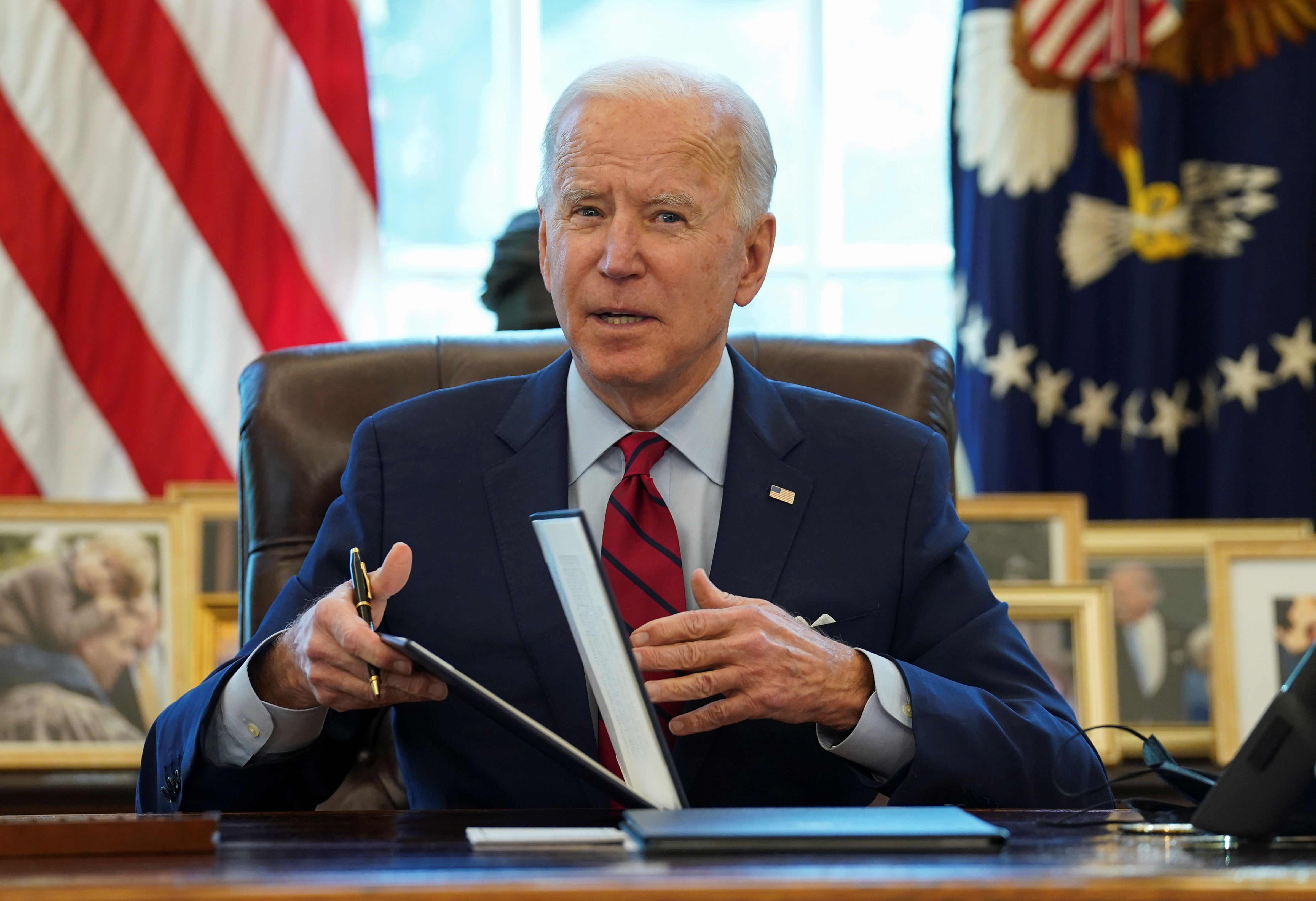Prospects for U.S.-Hungary Relations under the Biden Administration

The Biden Administration and Hungary
Relations with Hungary, an ally with little potential from the point of view of the U.S., will not be crucial in foreign policy. However, the declared commitment of the new administration to democratic values and the intention to strengthen them may draw U.S. attention to Hungary, which during the rule of Viktor Orbán has become one of the most frequently mentioned examples by experts and politicians all over the world of an advanced state’s departure from democracy towards authoritarianism. Biden also referred to Hungary in this context during the election campaign, mentioning it together with Poland and Belarus.
In the State Department, Hungary’s domestic policy will be monitored by people who have experience with this country. Secretary of State Antony Blinken is partially of Hungarian origin, and his father Donald Blinken served as the U.S. ambassador to Budapest from 1994 to 1997. The senior Blinken, together with his wife, was the founder of the Open Society Archives, an institution collecting documents related to the history of the Cold War and operating at Central European University, which, under government pressure, left Hungary in 2019. In addition, Victoria Nuland is the undersecretary of state for Political Affairs. During the Obama administration, as assistant secretary of state for Europe, she openly criticised the Orbán government for corruption and limiting freedom of the press, among other issues.
For these reasons, some Hungarian experts expect bilateral disputes over the rule of law to become even more severe than under the Obama administration. In 2014, these conflicts led to a ban on entry to the U.S. of six high-ranking Hungarian officials over corruption charges. In turn, the Trump administration did not pressure Hungary on its domestic policy, although it did formulate expectations regarding the consideration of American interests in other areas such as a coherent NATO approach to Ukraine, diversification of energy sources, and a reduction of Russian and Chinese influence. These requirements will not generally change with the new administration, especially since Trump achieved little. Hungary continues to block high-level NATO-Ukraine talks. Although the country concluded a six-year contract with Shell in 2020 for the supply of 250 million m3 of LNG annually via the Croatian terminal on Krk, this gas from Western suppliers (including the U.S.) will cover only 10% of Hungary’s demand, with the rest still imported from Russia. At the same time, the Hungarians gave a green light to the Chinese company Huawei regarding the construction of the 5G network, and the Chinese Fudan University is to open a campus in Budapest for around 6,000 students, co-financed by the Hungarian state at around €2.3 million. Hungary also has enabled Russia to build a long-term presence on its territory and has bought Russian and Chinese COVID-19 vaccines in large quantities, though they are not yet approved by the European Medicines Agency.
Defence cooperation within NATO has long been the least problematic dimension of bilateral relations. Although Hungary’s allied potential is limited, it is active in missions and is increasing its presence in NATO force structures. The country’s cooperation with the U.S. will be further strengthened by an agreement signed in August 2020 for the purchase of a NASAMS air defence system worth $1 billion. The gradual increase in defence expenditure that started in 2015 (around 1.6% of GDP in 2021) also has a positive impact on allied cooperation.
Hungary’s Point of View
According to the Hungarian government, bilateral relations with the U.S. were the best ever under Trump. This opinion is based on the ideological and political similarities between Orbán and Trump. Both leaders had a similar approach to migration policy and they were linked by populist rhetoric aimed at liberal elites and international organisations, which were described as enemies of the nation. However, they did not in fact strengthen bilateral relations in many areas. Therefore, the invitation of Orbán to pay an official visit to Washington in 2019—14 years after the last meeting of the Hungarian prime minister and a U.S. president in the White House—was rather an element of the State Department’s broader policy towards the Central European region than a particular appreciation of the Hungarian politician. Evidence of this is the fact that Trump met Orbán last among the V4 leaders.
Building contacts between Orbán and the Biden administration will be difficult. The Hungarian prime minister, just like before the 2016 U.S. presidential election, openly supported Trump. Orbán declared that if Biden won, he would expect “less mutual openness, goodwill and assistance”. He also expressed concern about “a Democrat administration’s foreign policy, built on moral imperialism”. In turn, Minister of Foreign Affairs Péter Szijjártó repeated claims that Biden’s son had been involved in corruption scandals. The public, pro-government media also carried out a campaign slandering the Democratic candidate. After the 3 November 2020 presidential election, these media reported on supposed election fraud and then after the storming of the Capitol by Trump supporters falsely reported it as a “left-wing provocation” and evidence of “left-wing violence around the world”. However, this interpretation of events runs counter to the view of the majority of Hungarians, who, according to polls, see Trump’s defeat as a positive turn for Hungary and the EU.
Parallel to its confrontational policy, Hungary is preparing to pursue professional diplomacy in Washington. The position of ambassador to the U.S. was taken over in November 2020 by Szabolcs Takács, a highly experienced diplomat. He is also the Hungarian government’s special envoy for anti-Semitism and the head of Hungary’s delegation to the International Holocaust Remembrance Alliance, an organisation he chaired in 2015–2016. This is in line with the usual policy of Hungary that treats contacts with Jewish communities in the U.S. as a priority in reaching decision-makers.
In building bilateral relations, Hungary will focus on permanent elements of cooperation, which in addition to defence policy, include economic relations. They are of great importance for Hungary, where the U.S. has been the second-largest investor for years and was the 11th trading partner in the first half of 2020, with a large surplus on the side of Hungary. The latter is also traditionally aligning with U.S. policy in the Middle East. With a possible change in U.S. policy towards Iran under Biden, the Hungarians may return to rebuilding economic contacts with Iran, which were suspended after the U.S. left the JCPOA nuclear deal.
Conclusions and Prospects
The international environment is changing to Orbán's disadvantage. With Trump’s defeat, the Hungarian prime minister has lost a most important point of reference and his main support in carrying out right-wing populist policy. The departure of German Chancellor Angela Merkel and the possible entry of the Greens—one of Orbán's biggest critics in the EU—to the German government after the elections this year, his ability to influence European and international politics may further be restricted.
In Hungary’s bilateral relations with the U.S., sharp disputes on the grounds of democratic values and the rule of law should be expected. The Orbán government will use these conflicts in the run-up to the parliamentary elections in 2022, pointing to the Democratic administration in the U.S. and the European Commission as enemies in an existential fight against “liberals”. The public media’s focus on the disputes surrounding the U.S. presidential elections and linking them with the political left shows the intention to refer to these conflicts in the event of a possible election victory of the Hungarian united opposition. According to polls from January, the opposition is slightly ahead of Fidesz.
It is disadvantageous for Poland to be perceived by the new U.S. administration in the same group as problematic countries, including Hungary, the more so because the interests of Poland and Hungary in foreign policy towards the U.S. are different. Hungary expects freedom in conducting foreign policy towards Russia and China in exchange for the purchase of American missiles and gas. It will not want to cooperate with the U.S. in stabilising the situation in the EU’s eastern neighbourhood or combating the growing influence of China. As Hungary does not feel threatened militarily, it does not care about increased U.S. allied support. This limits the possibilities of putting pressure on this country. Therefore, eventually both sides will be satisfied with the traditional areas of cooperation—defence and economic policy—on which worse relations at the highest level will not have a significant impact.


